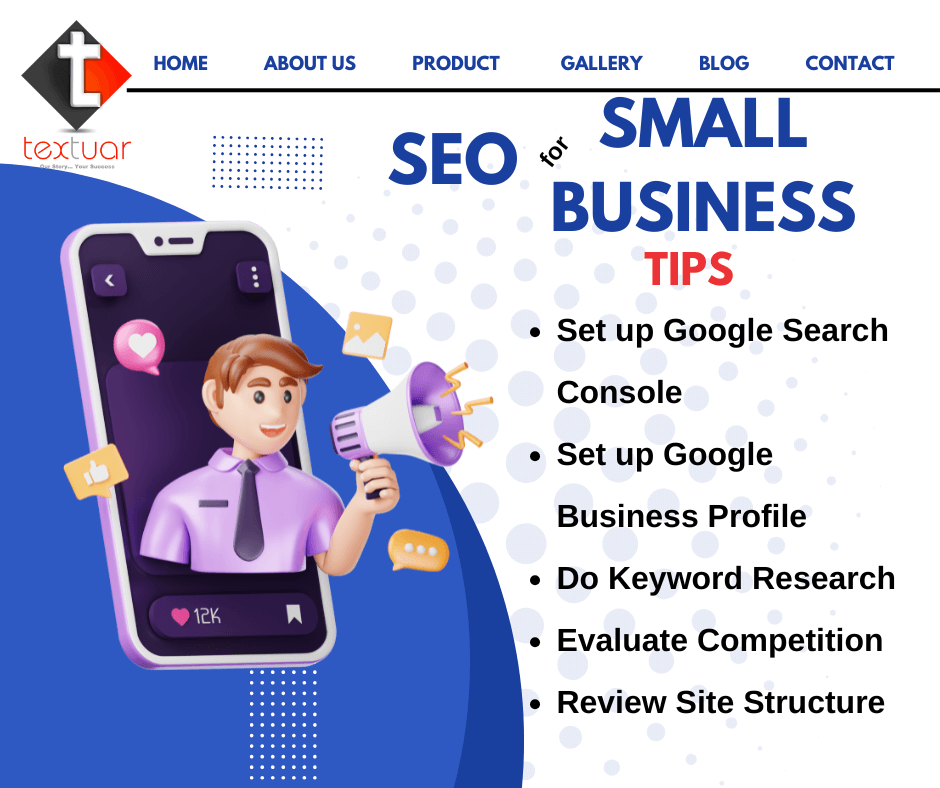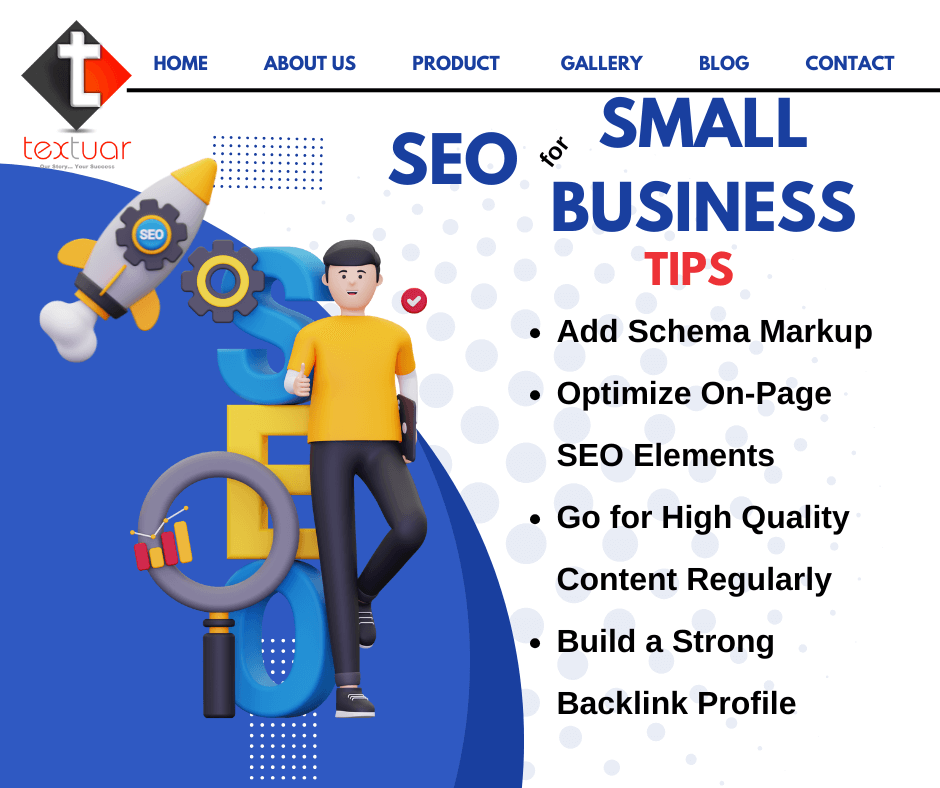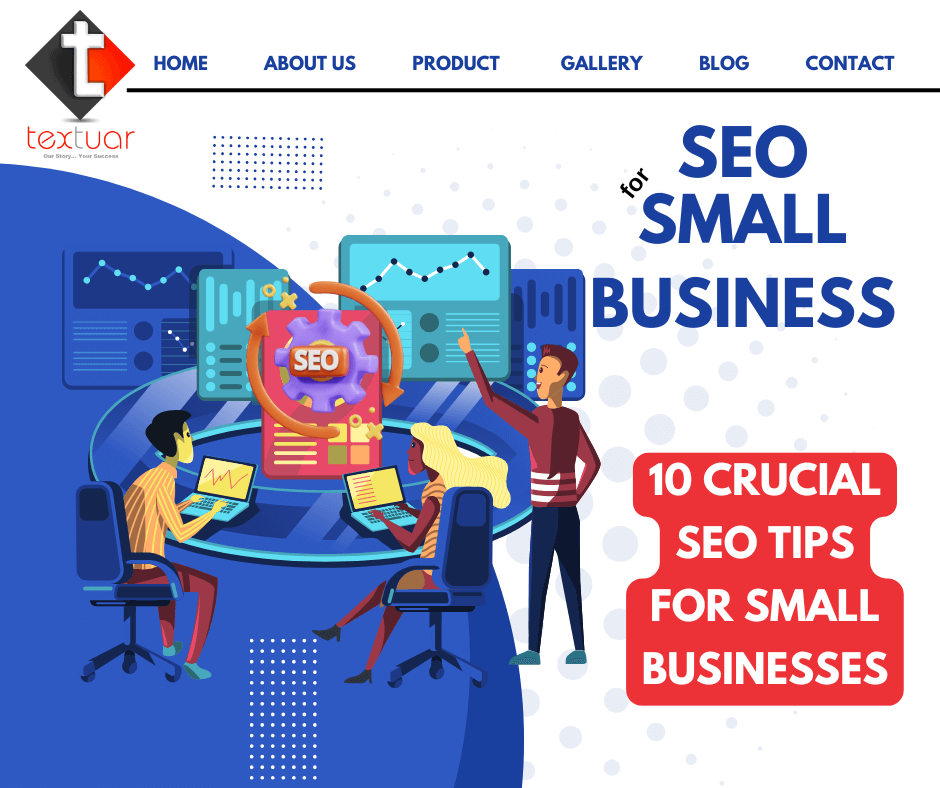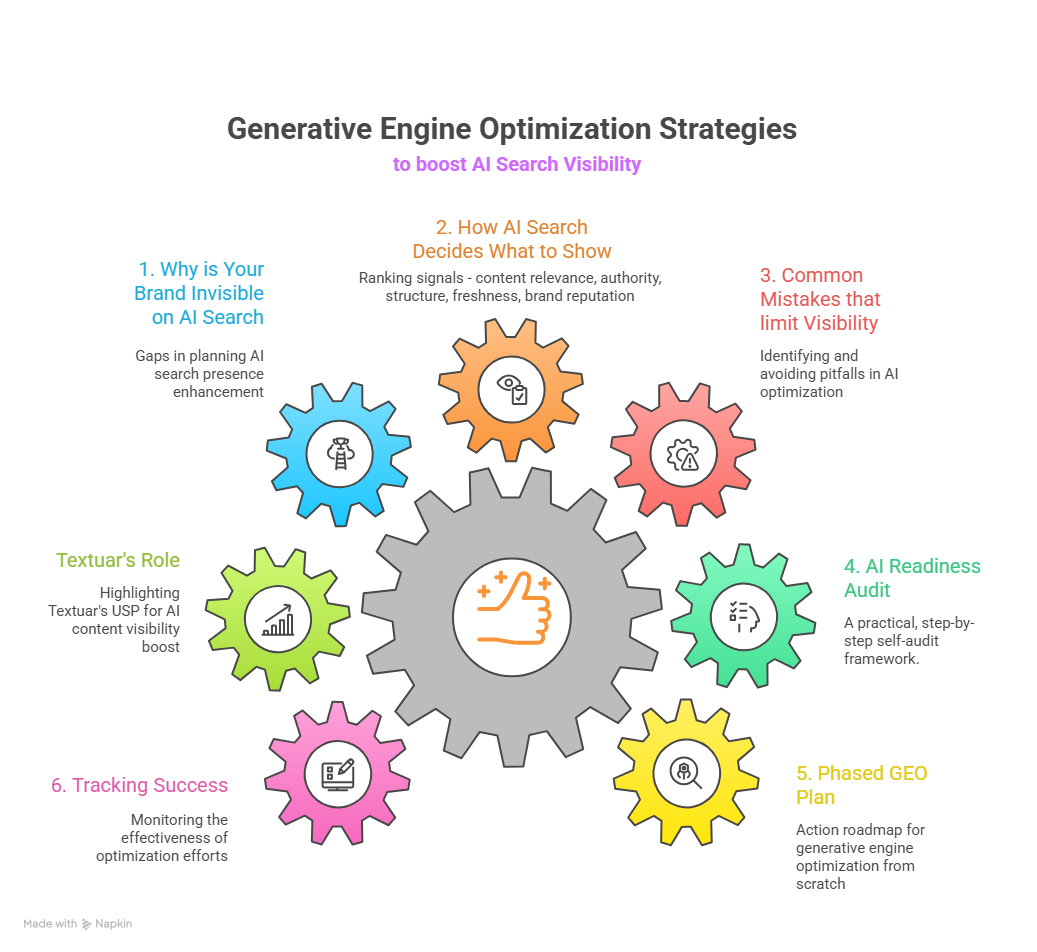Running a small business isn’t easy. Getting noticed online feels like trying to be heard in a crowded room. Thousands of people look to Google every day to find products and services that they need. Your potential customers are out there looking, but can they find you? If your business is not on their search results when they are looking for services same as yours, then you are missing out on these connections. And this is where small business SEO becomes your secret weapon.
If you know the right local SEO strategies for a small business, you can make your way up the search rankings, get more traffic to your website, and bring in more sales. Think of SEO as your online spotlight. It helps attract the right people at the right time.
In this blog, we will walk through ten practical tips that will help your firm stand out in the digital world.
What is Small Business SEO?
For a smaller company or startup, an SEO campaign aligned to your needs is necessary. Small business SEO in 2025 isn’t just following the same big corporation playbook. Instead, it provides strategies and best SEO tools for small businesses that work best for your venture.
Often, this means working to get some extra attention on local search results, which is super important if you have a physical store! That said, even if you’re selling to the customer online or you are serving your customers from different areas, these small business SEO tips can really assist you in standing out.

Why Small Business SEO So Important?
There are many benefits to investing in small business SEO. They aptly depict why you need to invest in affordable SEO services for small businesses.
[1] Increased Awareness
If you optimize your website, more people will be aware of your business online. It’s like having a bright storefront on the busiest street in town. The better you rank in the search results, the more eyes your business will get.
This translates into more clicks and more chances to connect with new customers.
[2] Increased Traffic
Having more visibility with content-driven SEO means that you naturally get more traffic to your website. More people will go to see your pages. It’s simple math. The more people can find you in search results easily, the more of them will visit your pages.
But here is the best part. These are not just random visitors. If they’re looking, they’re not just browsing. Instead, they’re actively seeking what you offer and are, therefore, more likely to become paying customers.
[3] Connection with Target Audience
Quality content allows you to build real connections with your target audience. When you help people answer their questions, you’re building trust. Businesses are respected when they go the extra mile and offer resources of value. As a result, many times, these reinforce relationships and customer retention.
[4] Competitive Advantage
Small businesses are often competing against large companies. That’s one of the reasons small business SEO is so powerful; it helps to level the playing field. If you rank higher than your competitors, then you can be in a position to be attractive to customers who might otherwise choose a larger brand. This advantage gives you the chance to create your own special space in the market.
[5] Availability 24/7
Even when you are sleeping, your optimized online presence is working around the clock. Unlike a physical store, which closes a night, your website is always open and serving customers looking for your product. The best SEO tools for small businesses make it convenient for people to access information about your business whenever is best for them.
[6] Cost-effectiveness
Small business SEO is often much easier on your wallet when compared to other forms of traditional advertising. Not all SEO strategies require a big marketing budget. You just need your time and effort to implement them. You don’t need to spend a fortune on paid ads to reach a wider audience. This could save you money over time and it will still bring you in new customers.
[7] Improved User Experience
Great SEO practices aren’t only about improving your rankings. They promote a more user-friendly website for everyone who visits. It is because when you optimize your site for speed, mobile friendliness, and easy navigation people enjoy spending time on your site. This creates a positive experience with them. This means they’ll stay longer; they’ll check out what you offer.
[8] Long-term Results
Paid ads stop working the second you stop paying, whereas SEO lasts. When you have good rankings, you will retain those with regular maintenance. Now, this means the small business SEO work you put in keeps paying off for a longer period of time.
A combination of all these benefits acts deliver splendid growth and business momentum. Putting these strategies into play strengthens your relationships with your audience. This results in a higher level of trust and loyalty that becomes stronger over time.
Here is a brief breakdown of how SEO can provide sustained growth and long-term value for your business in 2025:
| [1] Paid Ads vs SEO | Paid ads stop once you stop paying, while SEO provides lasting results. |
| [2] SEO Maintenance | Regular SEO maintenance helps retain good rankings over time. |
| [3] Long-term Benefits of SEO | Small business SEO work continues to yield results long after it’s implemented. |
| [4] Foundation for Growth | SEO strategies strengthen relationships, fostering trust and loyalty. |
| [5] Building Trust and Loyalty | Consistent SEO efforts build stronger audience trust over time. |

10 Essential SEO Tips for Small Businesses
[1] Set up Your Google Search Console & Google Analytics
Get your SEO journey started by setting up Google Analytics and Google Search Console. With these powerful tools, you’ll be able to see how well your website is doing. It’s like having a personal dashboard that lets you know exactly what’s working and what isn’t. no wonder this point works as one of the leading mall business SEO tips to consider.
With Google Analytics, you can see what’s going on with regard to visitors interacting with your site. It shows you important things such as the pages they are visiting the most, how long they are staying, and if they are taking the action that you want them to take. Google Search Console will exactly show you how your site looks in search results, showing and fixing any problems that could hamper your success. This will be your first step on how to do local SEO for small businesses.
Using these tools together gives you a view into your site’s performance. Rather than guessing what works, you can base smart decisions on real data about your visitors.
[2] Create a Google Business Profile
If you run a local business, you need a Google Business Profile. This is one of the best SEO tools for small business which is absolutely free tool. It lets people discover you on Google Search and Maps. And you can share all the important details about your business exactly where you’re located, when you’re open, how to contact you, and what your customers think of you.
Keep your profile up to date with current information. Make sure to respond to customers when they leave reviews. It shows people how much you care about their feedback, and it constructs trust. Don’t forget to include some photos of what you provide. They help attract people’s attention and are a good way to help people understand what your business is offering.
[3] Conduct Keyword Research
Successful SEO is built on keyword research. It means you need to get a feel for what people are actually looking for when they’re searching for businesses just like yours. There are tools such as Google’s Keyword Planner. They work well if you need to know how to find keywords for small business SEO.
First off, you’re going to want to come up with words that describe what you do. After that, see how many people searched for these terms and how competitive it is. Concentrate on keywords reflecting your business but that are less competitive to rank for initially.
Don’t forget to use longer, more specific ones that we call long tail keywords. They might not be searched as often, but they often bring in visitors who are more likely to become customers. Say you are targeting ‘shoes’ but instead focus on ‘best running shoes for flat feet.’
[4] Analyse SERP Competitors
Want to know what you’re up against? Study relevant websites that appear on top of the search results for your target keywords. It’s like doing competitive research only for the digital world. You must learn to pay attention to how they make use of keywords, what they write about, their site structure, and many more. Its efficacy makes it one of the most prevalent SEO best practices for small business websites.
Ultimately, this research tells you what opportunities they might have missed. Or maybe they’re just getting started yet have good content that they’re not engaging with their readers very much. Or maybe their website is really awful to navigate on phones. When you learn from what other people are doing right (wrong), you can make better choices for your own site.
SEO isn’t about copying your competitors, it’s about understanding what’s being worked in your market and how you can do it even better.
[5] Review Your Site Structure
Imagine your site as a well-arranged store. Always find what you are looking for. The same goes for your website’s structure, too. A well-organized site makes it possible to find your way around for both visitors and search engines. With its immense impact, many experts think of it as one of the best local SEO strategies for small business.
Ensure people can get to any page that matters on your site in four clicks or less from your homepage. Have clear menus as well as clear web addresses with clear meaning to humans, not to the search engines.
Creating a sitemap is like giving search engines a roadmap of your website. It lets them know the layout of things and make sure that they won’t have any pages missing. By submitting the sitemap to Google Search Console, you are also helping the search engines locate and show your content.

[6] Add Schema Markup
Schema markup can sound technical, but it’s essentially telling search engines extra details about your web pages. In a way, it’s like providing a detailed description tag for everything on your site. When you use schema markup, you allow search result listings to show extra information, such as star ratings, prices, and availability.
For instance, when running a restaurant, schema markup can show your customers’ ratings in the search results. That makes your listing more attractive and instructive, usually resulting in more clicks on your website.
Give yourself some time to learn what type of schema markup makes sense for your business. This can help you against competitors and help you get an edge in search results.
[7] Optimize On-Page Elements
The on-page elements of your website are like the signs and displays in a physical store. For visitors and search engines, they have to be clear, helping, and appealing. Your page titles, descriptions, headers, and images fall into this category. Make your titles catchy and descriptive, as you want to have 55-60 characters to tell people what they’ll find on your page. If your meta descriptions summarize the page content in 140–160 characters and encourage people to click through and learn more, you’re doing well.
Headers break down your content into bite-sized pieces that are easier to read and understand. Your main title (H1) is to catch attention, and your content is to be organized by subheadings (H2 and H3) to help readers go through your information.
Also, don’t forget about your images. Describe file names and alt text and give them to them so search engines know what they show. This leads your small business SEO as well as improves your site’s accessibility for everyone.
[8] Create Quality Content Regularly
The content still rules on small business SEO, but you should create the content with the information that your audiences want to hear. Consider the questions your customers generally always ask and write content that clearly and in-depth answers the questions.
Sharing your expertise through a blog is one of the best ways to keep your website fresh and to learn something new yourself. Talk about industry trends, offer some helpful tips, or let people know about your products or services. If you’re consistent about posting valuable content, both search engines and visitors will come back to your site more often.
Tell stories, share real examples, and directly address your reader’s needs to make your content engaging. Encourage discussion by asking questions that will get readers to discuss their own experiences. It makes your brand community and brings more visibility to your SEO.
[9] Build Backlinks for Stronger Small Business SEO
Backlinks are typically like votes of confidence from other websites. When reputable sites link to you, that tells search engines that your content is reliable. In the beginning, this takes time, but it’s worth it if you want to improve your SEO strategy.
First, connect to other businesses or people in your local community who run similar businesses to yours. Reach out with ideas for articles and blog content on their sites. Create helpful guides or interesting infographics that others will want to share.
Tools such as Ahrefs or Moz will give you an eye on your existing backlinks. Fix broken links as fast as you possibly can to keep your site’s authority. When it comes to backlinks, always remember that quality is more important than quantity.
[10] Monitor Your Progress and Adjust Strategies
SEO isn’t a set-it-and-forget-it task. It’s more like tending a garden. You have to watch what’s flourishing and what needs your attention. Perform regular checks of Google Analytics and Search Console data to see what your efforts are doing for you.
You don’t have anything to be afraid of when it comes to adjusting your strategy after taking in what you learned. Perhaps some keywords aren’t bringing in the right type of visitors, or certain pages just aren’t converting at the rate at which they should. This information can be used to make intelligent adjustments to your approach.
Don’t forget to stay updated with modifications in the SEO universe. Of course, search engines update their algorithms constantly and new best practices keep coming up all the time. These changes help you stay ahead, and help you compete with slower competing competitors who are not adapting to these changes quite as fast as you are.
To conclude
Improving your small business SEO will take some time and effort, but it will be well worth it in the long run. With these ten tips – from installing the necessary tools to writing high-quality content and building important backlinks – you are putting your business in a great position in the digital world.
Begin putting these strategies into practice step one at a time. You don’t have to do it all by yourself. First, focus on the basics, then add more and more advanced techniques once you become comfortable with what you have.
It is a marathon, not a sprint. It might not change dramatically overnight, but stick with it. As you add each improvement to the online domain, they stack on top of each other, forming a strong presence, and more customers join your business.
Effective small business SEO lets you share your value in the world – something that your business has to offer. Regardless, keep learning, keep improving, and keep connecting with your audience. It will follow the growth and success you are currently seeking. You can accelerate this goal by on-boarding Textuar. Our SEO webmasters will ensure all-round optimization of your web presence.
FAQs
Q: What’s the fastest way for my local shop to show up on Google Maps?
Start with a Google Business Profile. Fill in your shop’s details right away. Your store hours, location, and photos will help you pop up in local searches. Simple steps like responding to reviews can boost your visibility quickly.
Q: Is investing in SEO better than running social media ads?
Digital marketing needs both approaches. Yet small business SEO delivers lasting value without constant spending. Unlike ads that vanish when payments stop, good search rankings stick around. Your investment keeps working even while you sleep.
Q: Do small businesses really need fancy SEO tools?
No, not at all! Options like Google Analytics are the best SEO tools for small business. They are a good place to start. These basic tools pack plenty of power for beginners. If required, you can explore paid options later.
Q: What is the deal with backlinks? Should I care?
Google detects when reliable websites link to yours. Here, quality is more important than quantity. Dozens of weak links are outweighed by one strong link. This means, focusing on backlinks, especially good quality, should be on top of your strategy.
Q: Should I focus on local or global SEO strategies?
You can start by focusing on your neighbourhood. Local clients frequently turn into devoted regulars. Once you have mastered local rankings, you may reach a wider audience. Keep in mind that controlling your local market creates a solid base.










